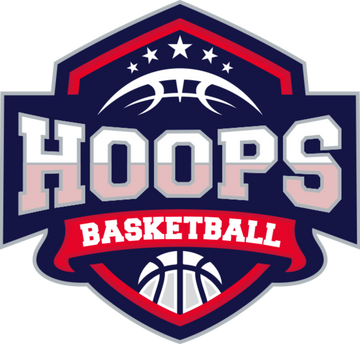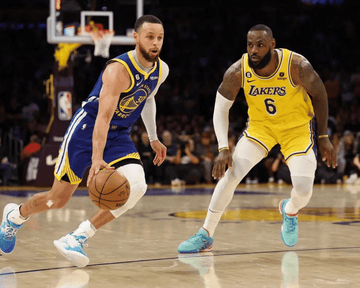Basketball is one of the most popular and widely played team sports worldwide. It is physically demanding and mentally challenging with a long intense season at both professional and amateur levels. There are 5 players on a team during play and up to 15 squad members. Matches are played in 4 quarters of 10 or 12 minutes. At all levels of competition, basketball players must be quick, powerful, skilful, agile and have the right mental attitude to perform under pressure in order to succeed. To achieve peak performance in basketball, significant consideration must be given to appropriate training methods and lifestyle, and dietary practices should be implemented to maximise energy stores before, during and after exercise.
Sport-specific physiological demands
Basketball players can cover up to 5,000 meters during a match usually in the form of frequent sprints, explosive movements (e.g. jumps), and changes in direction. The physiological requirements of basketball are met by contributions from both aerobic and anaerobic energy metabolism. During intense matches, the greatest energy demands tend to be placed on the anaerobic system. Nonetheless, aerobic metabolism plays a significant role in facilitating the recovery of phosphocreatine during breaks and low intensity periods in play. Ultimately, the energy systems derive the majority of their energy from carbohydrate during high intensity exercise.
Nutritional considerations
Rapid changes in direction and pace during matches place large demands on energy metabolism from liver and muscle carbohydrate (glycogen) compared to even-paced exercise. For this reason, carbohydrate (CHO) is the most important fuel for basketball players and appropriate amounts should be consumed in preparation for matches. Fatigue and reduced skill levels are performance-limiting factors that players must aim to avoid during matches. This is best achieved by minimising glycogen depletion and replacing fluids lost mainly through sweating (hydration). If glycogen stores and hydration levels are inadequate before the onset of exercise or decline excessively during a match, athletes may experience fatigue, reduced speed, reaction time, stamina, decision making abilities, and mental focus.

Monitoring hydration
Athletes who become dehydrated during matches and training are more susceptible to injury and will fatigue quickly if appropriate hydration strategies are not implemented. Hydration should be a priority for a basketball player at all times, but particular attention is required when preparing for, playing in and recovering from training and matches. A simple technique commonly used to measure daily hydration status is the ‘pee test’. Simply monitor the colour of your urine when going to the toilet, the darker the colour and the stronger the smell the more dehydrated you are, whereas light, odourless urine should indicate that you are well-hydrated
Pre-match nutrition
Having adequate CHO stores and being well-hydrated before a basketball match is essential. In the days and hours leading up to competition, athletes should ensure they are adequately fuelled up with high CHO-containing foods. FUEL LOAD is a specialised formulation providing a steady supply of CHO to the body in the days prior to a match, which in turn is stored in the liver and muscle and used during matches i.e. CHO-loading. A pre-match meal should be 2-4 hours before the match, and should be high in slow-digesting CHO (preferably low glycaemic index (GI), and be low in fibre and fat. Adequate fluid in the form of water, or an isotonic CHO-electrolyte solution should be consumed in the 2-4 hours before performance.
Performance nutrition during the match
The main nutrition goal during basketball matches is to offset dehydration and maintain energy (CHO) levels. Fluid losses can greatly reduce skill and sprint performance, so regular consumption of fluids in the form of isotonic CHO-electrolyte solution such as CHO CHARGE is essential. Aside from the benefits of fluid intake, CHO CHARGE also contains an optimal blend of carbohydrate sources (an advanced Vitargo®/fructose combination) to fuel the muscle during activity, and the appropriate amount of electrolytes to aid rehydration and palatability. Half-time and breaks between quarters offer athletes excellent opportunities to get fuel and fluids on board.
Post-match nutrition & recovery
Immediately post-exercise is the most important phase for achieving optimum recovery from basketball matches. This is the time when your body has the greatest ability to restore depleted glycogen and maximise recovery. If adequate carbohydrate is not consumed after training and competition, performance in subsequent training and matches is likely to suffer, i.e. replacing muscle glycogen stores after training and matches is critical for recovery and preparation for the next exercise challenge. A quality source of protein is also important for facilitating growth and repair of muscles. This can be achieved by consuming a balanced meal containing a quality source of protein, complex carbohydrate and micronutrients. However, the best way to kick-start replenishment of glycogen stores after exercise is to consume a fast-digesting carbohydrate-protein combination. RecoverAce Endurance is the ideal recovery supplement for post-exercise recovery from basketball matches. It contains Vitargo, a fast-digesting carbohydrate source that rapidly replenishes glycogen stores, and an optimum quantity of high-quality protein to support muscle repair.
Protein
There is emerging evidence that protein supplementation, particularly essential amino acids (EAAs) and branched-chain amino acids (BCAAs) consumed during and after high intensity exercise can reduce the feelings of fatigue, and promote muscle protein synthesis and adaptation after exercise. The type, timing and amount of protein can be manipulated to enhance the adaptive response to training. A fast-digesting source of protein such as WHEY TRU, or using isolated amino acids such as ISO BCAA or ISO EAA, is appropriate. RecoverAce Endurance is an appropriate source of both quality protein and isolated amino acids, with the added benefit of containing a source of CHO.

Summary
Basketball is a high intensity sport with significant physiological demands. The consumption of optimum amounts of fluid and fuel before, during and after basketball matches is critical for performance. Players will not reach their potential unless they are providing their bodies with the necessary nutrients to fuel the physical and mental demands of each match. In the days preceding matches, the main focus should be on high carbohydrate sources like FUEL LOAD, which will help to maximise energy levels during the match. CHO CHARGE is ideal for consuming just before during and after matches to maintain energy levels and hydration balance. Recovery nutrition should begin immediately with Recover Ace Strength or Endurance, which both contain fast-digesting carbohydrate and high quality protein to replace depleted glycogen levels and facilitate the repair of damaged muscles. By following these simple guidelines a player will be well prepared to perform to their best during training and competition.





